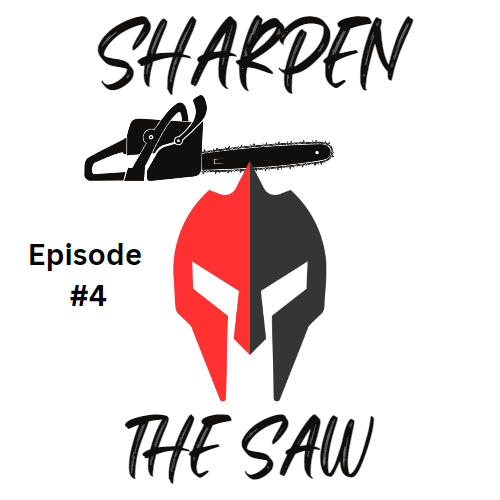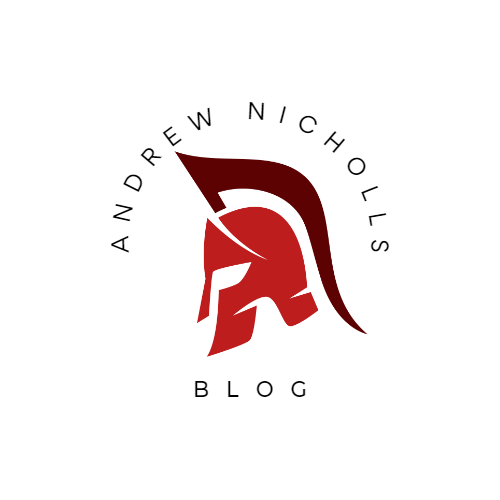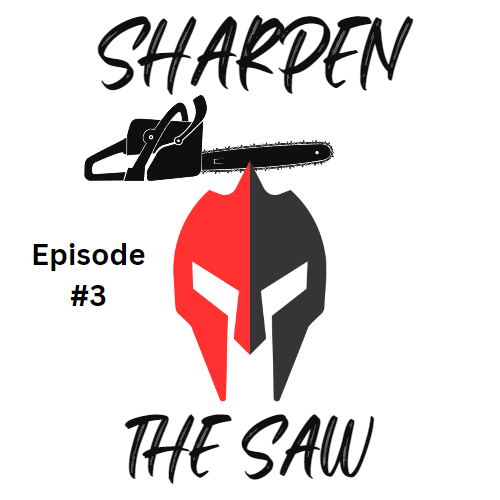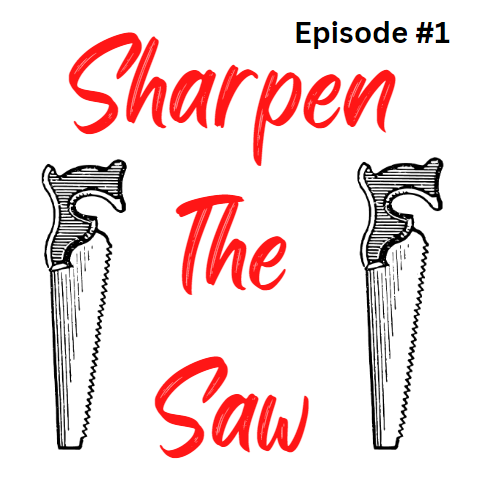Sharpen The Saw Podcast Episode 2
Commercial Crab Fishing
In this episode, I talk about my previous job as a commercial crab fisherman on the west coast of British Columbia, Canada.
Share
Hey, it's Andrew Nicholls here, and welcome to the Sharpen the Saw podcast. In this podcast, I talk about how to level up or sharpen your saw and become the next best version of yourself.
In today’s episode, I wanted to talk a little bit about my previous profession. There has always been a lot of interest in what I did for a living, which was a commercial crab fisherman on the beautiful west coast of Canada.
I fished in a body of water called the “Hecate Straits”. It is located right between the Queen Charlotte Islands and the main Land by Prince Rupert.
My commercial crab fishing career stretched from 2014 to the beginning of 2021, or 7 years.
I grew up in a small town just below Vancouver, British Columbia, called Ladner. It was a small fishing and farming community which gave me the opportunity to do a variety of different fishing jobs in my youth.
Some of the fishing jobs I did were herring, gill netting, and unloading fishing boats.
I never thought I would get into fishing full-time. I just thought it was a good way to make some extra money in high school.
Another job I had that secured my foothold in the fishing industry was building prawn, crab, and black cod traps.
Having that extra knowledge about how crab traps were built helped me a lot later on when I actually got on the boat.
I got on a pretty good-sized boat. It was a 69-foot seine boat that was converted to a crab fishing boat. The boat's name was the “Delta Harvester”. It was part of a fleet of boats owned by a super-rich guy named Randy and he pretty much used the whole operation as a tax write-off.
The story of how I got on the boat started with me and a friend of mine wanting to get sober. We didn’t really know how to do that. All we knew was drinking. But luckily for us, we had a mutual friend who had been sober for probably 2 years at the time and he got us into an AA group.
The friend I got sober with was the first one to get invited and then he told me about it and convinced me to go.
I didn’t want to go initially because I thought it was some kind of cult.
After going I soon found out that it was not. In fact, it helps a lot of people and ended up being one of the best decisions I made in my life. I ended up learning a lot about sobriety.
The guy who got us into the AA group was also the one that got us on his dad's commercial fishing boat.
It was pretty crazy. Just as I was getting sober the opportunity came to get on a completely sober crab fishing boat. A very rare occurrence in the industry. The captain had at least 23 years of sobriety himself so he was able to teach me not only about crab fishing but sobriety as well.
I never got on the boat looking to make all kinds of money. For me, it was about finding a change that would be valuable to me in my sobriety. I needed to get out of my town and away from some of the people I was hanging around with who, as it turned out, were just drinking buddies that I did drugs with.
I figured this would be the best way to get clean and stay sober. All I would be doing is working.
An average trip when we were actually out fishing, and not just doing boat work or fixing crab traps, was around 7 days. Although the length of the trips did vary from between 3-14 days.
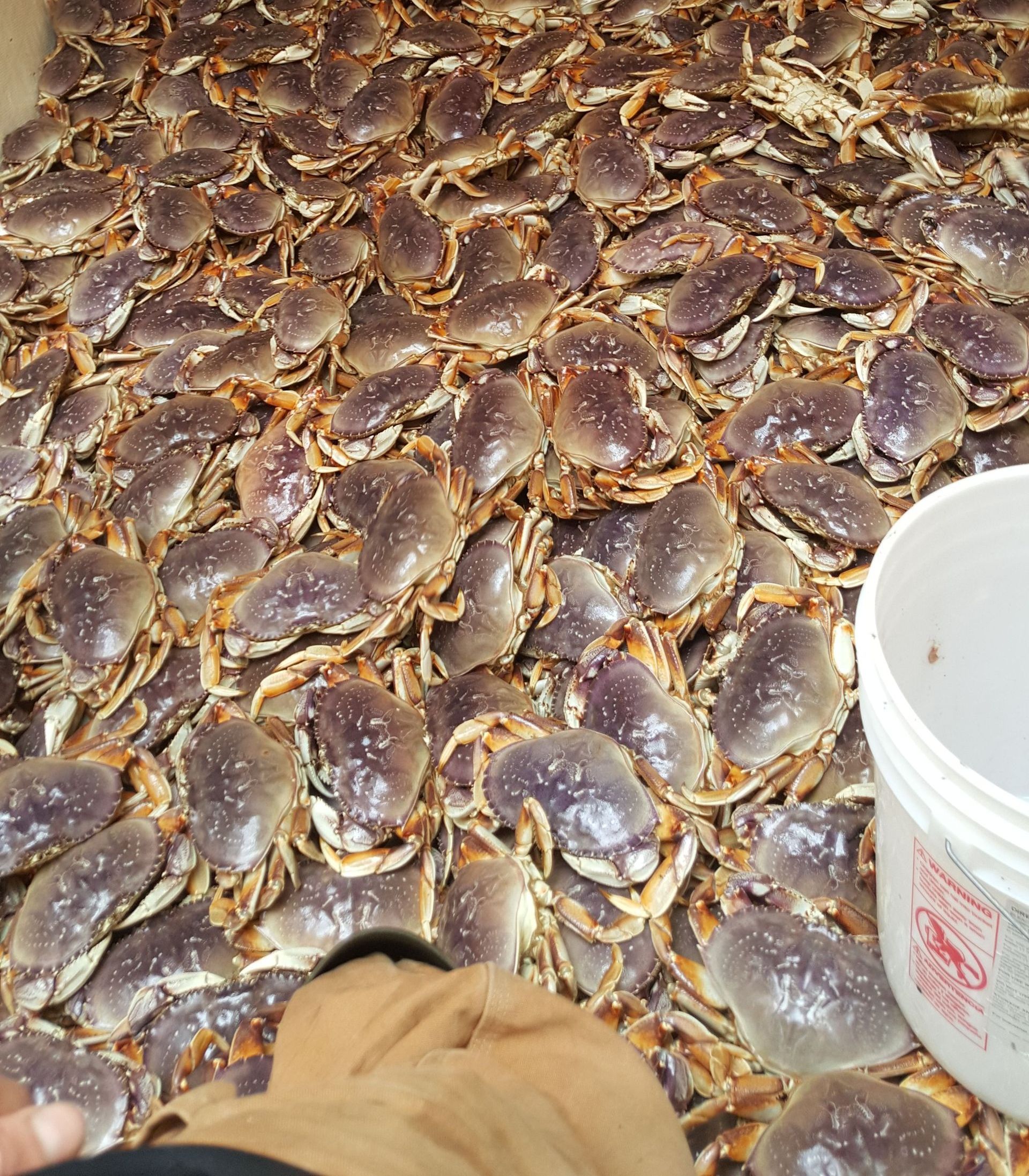
But before we actually got out to fish we had to do gear work. This is basically going through every one of our traps to make sure they didn’t have any holes in them and just do some general maintenance. If there were holes the crab would get out and traps without crabs don’t pay.
I always get asked if it is like the deadliest catch. Well, it is more like the spin-off they did called “Deadliest Catch: Dungeness Cove” which is based out of Oregon in America. Same crap and style of traps as that version of the show.
Our traps are different from the ones you see on the original deadliest catch and our boats are much smaller.
Our traps weighed anywhere between 90-120 pounds each and we had 1200 of them.
When I first got on the boat the gear pile that came with the boat was a complete disaster. My first round of gear work was a solid 8 weeks of 12-hour days. We spent our time building new lines, buoys, bridles, and mending the traps. This was just to get the gear fishable.
Towards the end of my stay on the boat, we had a very good-looking gear pile. It was super noticeable from how many more crabs we were getting in our traps. Not only that but it made life a whole lot easier when we had to stack them on the boat.
Once we got the gear work done we could load the traps onboard. To initially get the traps into the water it usually took around 3 days of pretty much going around the clock with little or no sleep.
We would get them into the water in 3 loads. The first load is the biggest load at around 500 traps. We would stick roughly 100 into the front 2 hatches and the other 400 would be on deck.
There would be so many on deck that we could barely even get out of the door.
On opening day we would be ready to go. It would open at 8 am on opening day. We would wake up between 3-4 to make sure we had a good amount of bait cut, everything set up, and maybe even a nice meal before we started the grind.
Once we were actually fishing the trips would usually be shorter at the beginning. This was where most of the money is made. Lots of factors go into how long we are out on a trip but we always tried to get in sooner than later. The longer the crabs sat in the hatch the higher chance there was of them dying. If they died they would be no good to anyone. Crab buyers don’t buy dead crabs.
When the fishing season opens we are literally living on the boat for 8 or more months. We fished out of Prince Rupert, which was a long way from where I lived in Ladner.
The crew consisted of 3 people on deck and the skipper/Captain. That was if we could even keep a full crew. It was extremely hard to keep people around because of how physically and mentally demanding the job was.
People think they know what they are signing up for after watching Deadliest Catch but they are wrong. Once they actually start doing the work themselves you can watch their eyes glaze over in real time. Some were all talk but even after the first day, most people would shut right up. Never have I ever witnessed men folding like cheap tents as much as when I was on this boat.
We’ve had people cry, threaten to kill themselves, and all kinds of crazy things like that.
I don’t really blame them, to be honest. This job was definitely not for everyone. I mean I have done all kinds of other physically demanding jobs like structural concrete, roofing, and even building traps was pretty tough but this was on a whole other level. I even spent some days on the stern of the boat contemplating my life. It takes a different kind of mindset to do the job and you have to be a little bit crazy.
The pay was pretty good but we still had the potential to do all this hard work and come back with nothing. We didn’t get a salary or something like that. We got paid a percentage of the catch after expenses.
The average pay was usually between 7-10%. This pretty much depended on the boat you are on and how much experience you had. I got lucky and got on with a skipper who was very generous with his pay compared to other captains.
I started out at 7% because I didn’t have much experience on this kind of boat but was able to work my way up and take on more responsibilities to be paid more.
In the beginning, I started doing bait, and it was my job to make sure everything was tied down. On a fishing boat, you definitely don’t want anything to move, especially when you are in rough weather.
The next step for me was becoming the boat cook. It is way different cooking on a commercial fishing boat than in a restaurant or even back at home. It was my job to make sure we had all the food supplies we needed for each trip. This was an important job. In the same way we fuel up the boat, we need to fuel up the men. I had to make sure everyone was eating so we all had the energy to do what we needed to do.
I got very lucky because a lot of the other boats in the fleet's idea of cooking was to have a fucking table full of cocaine and to hit the local corner store for some pizza pops and junk food. We ate very well on our boat. Prime ribs, pork roasts, and steaks were common to see on the table on our boat.
We spared no expense on food. Usually, at the start of a season, we would drop 3k to stock up on meat for part of the season. It would end up being a little cheaper for us to buy in bulk. We pretty much ate like kings.
We got absolutely spoiled on the boat and could usually get in 3 solid meals per day in-between snacking and working.
On top of all this, I also had to work on deck so pre-planning and preparing was essential. At the end of a long day, I couldn’t forget to take the meat out of the freezer either.
For breakfast we usually had the standard bacon/sausage and eggs but sometimes if we had leftovers from the day before I would make us omelets.
Lunch usually consisted of a quick little dish we liked to call goulash. This would just be leftovers fried up with some rice.
Dinner was where we had our prime ribs, steaks, and roasts.
Making food at some points could be a gong show. Running in and out full fucking chisel to check on the food to make sure it wasn’t burning and getting the work done on deck.
To cook we had a diesel stove. It doubled as our heater to keep the boat warm and for our hot water so it was on all the time.
After being a cook for 3 years I got to become an engineer. I always found myself back cooking because we couldn’t keep anyone around but my main responsibility then was making sure we didn’t sink and that everything was in working order.
The engines we had on the boat were the main engine, a Cummings, 1 big john deere for general electricity and a backup for the crab pumps and hydraulics, Another big john deere that could run everything, and a little Yanmar that was just for general electricity.
I did all the maintenance on the engines like oil changes, changing belts, or fixing anything that went wrong. I kept everything all greased up. I had to have all my engine room supplies organized and make sure we didn’t run out of anything. If anything broke anywhere on the boat like a door or the stove or something I would have to figure it out.
We even had the false wooden deck rip off the boat from the weather that we had to fix. Basically, the boat gets beat up.
Shit just fucking moves like you wouldn’t believe when you get hit with big waves.
I remember a time when we were fishing and the weather was kind of bad but good enough so we could keep fishing. But it was starting to get noticeably worse. Our skipper finally says, “It’s going to start getting a hell of a lot worse pretty quick here so we are going to head in”. We finished up the string we were working on and started tying shit down on the deck. Well out of nowhere a huge queer wave nuked the boat while we were still on deck. The boat completely heeled over and I was looking straight down into the water from the middle of the hatches. Another guy was at the back of the boat and he slid across the whole boat and hit the side rail. Luckily no one ended up going over but we were like “Holy shit”. A surefire way to get the adrenaline going. We ended up taking a beating heading off the grounds but everyone was ok.
There were so many times just like that and sometimes we had to bite the bullet and fish through some pretty big weather. The skipper was pretty good about getting off the grounds before it got too crazy. It could get super dangerous super quickly, especially in that body of water. Because it was really shallow water there the waves got really choppy and were close together. It wasn’t like outside in the open water of the West Coast where the waves were further apart and had a bit more rhyme and reason to them.
There is a reason they call the body of water I fished in the Hecate Straits. “Hecate” means hell in Latin and it could sure be hell at times.
We used all kinds of different kinds of baits. Squid was the main type of bait we used. We put that in bait cups. They were basically jars with holes in them. We did mix some other things with it but usually, it was just squid. In the bait cage, we would put cod, clams, and herring for the most part. The odd time we would get a deal on something else but we pretty much used the same stuff every time.
In one of my last seasons on the boat, we ended up getting a record-breaking load of crab for the whole West Coast of Canada and the USA. It was over 82k pounds of crab! We ended up filling all 4 hatches, something we had never done before. The unloading process ended up being a gong show. We ended up offloading at a place we had never offloaded before and the guy managing the offload was clearly a fucking idiot. We got through offloading half of our crab and had to go somewhere else which caused a lot more crab to die than should have. It ended up being over 24 hours of offloading in the end. Even with the fuck ups it was an absolutely amazing experience and I am very grateful to have been a part of it.
Something most people didn’t know about Dungeness crab fishing is That the fishery doesn’t stay open all the time. There would be a carb charter. The charter was where a boat in the fleet would volunteer/ get chosen to test the crab. What most people don’t know is that crab molt. Pretty much the way they grow is they come right out of their shells. When they do they get supper soft, pretty much like jello, and get way bigger. Their shell hardens back up and they are bigger than they were before. Well, the testing boat samples the crab and basically the closure is determined on a set of criteria that the data shows. If it is a softening trend then the fishery closes and there is a 2-week break, then the test boat sets out test pots and gets data to determine a hardening trend that determines the opening of the next season. We did this to avoid killing the soft crab with our traps.
Anyway, that is a little bit about crab fishing. If you have any questions then feel free to hit me up via the contact information on this website. Thanks for tuning in and I’ll see you at the next one.
